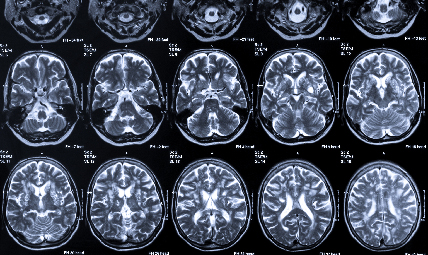Cambridge Enterprise today announced the completion of a licensing agreement with Cantabio Pharmaceuticals, Inc. that gives the company access to intellectual property from research targeting the Tau protein for the treatment of “Tauopathies” such as Alzheimer’s disease (AD) and dementia. The aggregation of Tau is a hallmark of Tauopathies and is strongly linked to the onset and progression of these diseases. The licensed therapeutic programme contains data and know-how for a set of novel, small molecule drug candidates that bind to the Tau protein and reduce its misfolding and aggregation.
The innovative drug discovery approach, applied to identifying and characterising drug candidates targeting Tau, was led by Dr. Gergely Tóth at University of Cambridge (UK) and CEO of Cantabio, and Professor Eckhard Mandelkow at the Max Planck Institute (Germany) in collaboration with NovAliX (France) and Elan Pharmaceuticals (USA). The licensed therapeutic programme was developed with funding from grants from the Neurodegenerative Disease Initiative of the Wellcome Trust, the Medical Research Council and Elan Pharmaceuticals. It was described in a peer-reviewed scientific article in the journal Current Alzheimer’s Research that was selected as the 2015 Editor’s Choice article.
We are pleased that our scientific discoveries will be developed by Cantabio to advance these promising Tau-targeting drug candidates into therapies to treat these debilitating diseases.
Professor Eckhard Mandelkow
The agreement gives Cantabio full use of the programme data and the right to develop compounds derived from the research into therapies. It further strengthens the company’s portfolio of therapeutic programmes, its intellectual property in Alzheimer’s, Parkinson’s and other neurodegenerative diseases and complements its expertise in pharmacological chaperone-based therapeutics.
Professor Eckhard Mandelkow said “We are pleased that our scientific discoveries will be developed by Cantabio to advance these promising Tau-targeting drug candidates into therapies to treat these debilitating diseases.”
Professor Peter St. George Hyslop, Director of the Cambridge Dementia Biomedical Research Unit at the University of Cambridge and Principle Investigator of the Neurodegenerative Disease Initiative grant, said, “Through this agreement, Cantabio can further develop this exciting therapeutic programme, which has excellent potential as a novel treatment for Alzheimer’s Disease. We look forward to supporting the company’s efforts going forward.”
Dr Denis Zeyer, CEO of NovAliX said, “We are delighted to see this programme further develop into clinical candidates. We are proud to support Cantabio’s innovative therapeutic approach in targeting Tau and other intrinsically disordered proteins with our unique propriety high throughput screening capabilities.”
Dr Tóth commented, “This Tau-targeting therapeutic programme developed by world leading academic organizations such as the University of Cambridge and the Max Planck Institute is well aligned with our goal of developing pharmacological, chaperone based-therapeutics and strengthens our position as a leading innovator in discovering and developing drug candidates with this mechanism of action. We are excited about the potential of this programme to deliver candidates to help combat Alzheimer’s disease and are especially pleased to have the opportunity to advance them towards clinical trials, a culmination of research developed over years of collaboration with outstanding research groups globally.”











